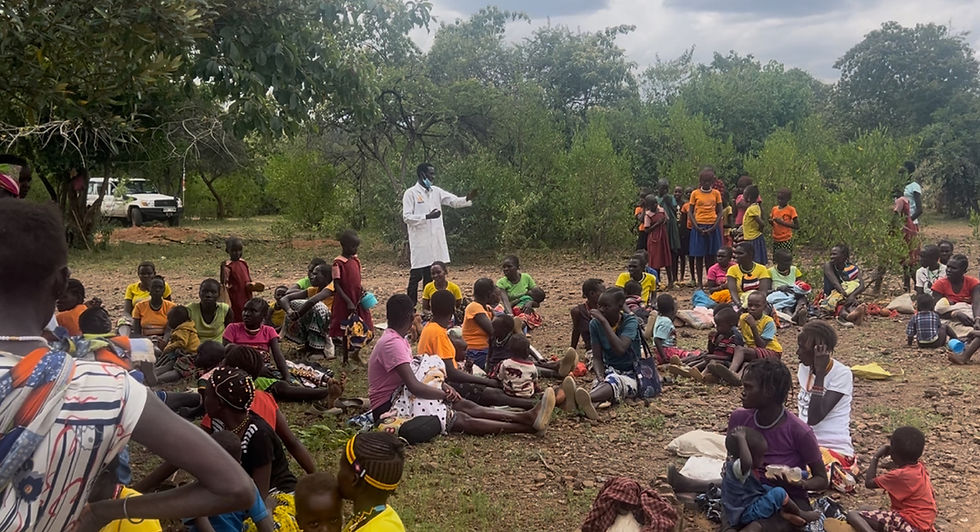An Interview with a Lab Technician
- Hellen Nyakundi
- Nov 14, 2020
- 2 min read
Updated: Nov 24, 2021
KALA-AZAR IN EAST POKOT
Interview by Mwatela Kitondo, Izumi- NTDs Kenya, Project Admin Assistant, edited for clarity
Please share a little bit about yourself? My name is Maxwell Lyambila. I am originally from the western part of Kenya, approximately 400 km from East Pokot. I work as a laboratory technician with the Ministry of Health at Nginyang Health Centre, East Pokot Sub-County, Baringo County.
How long have you been working in East Pokot? I was deployed here in 2004. The health situation was in such a dire state that I contemplated transferring. The area had been neglected for so long in terms of infrastructure, health, education and socio-economic status.
What is the status of VL in this region? Kala-azar is endemic to East Pokot, and for a better part of my time here we didn’t have the necessary expertise and tools to deal with the disease. We resorted to referral of the suspected cases. Nginyang is one of the health facilities that is supported by the Izumi foundation to provide Kala-azar services in East Pokot.
What has been your experience with the Kala-azar Project? I was among the first health workers in East Pokot to train on Kala-azar case management. The training was supported by Izumi. For the last three years, I have been involved in passive diagnosis of Kala-azar at the facility and active case searches in endemic villages in East Pokot. However, the community prefer traditional healers to conventional medicine, but over the years I have observed a change as the number of patients coming to the health facilities has increase.
What personal achievements can you share? Last year I facilitated a community health workers training in Chemolingot. I was given this opportunity in recognition of my Kala-azar experience
What are some of the challenges you have experienced while working in East Pokot? It took me a long time to adopt to the harsh climatic conditions; high temperatures with scarce rainfall. I have had to learn the Pokot language which for a long time was a major barrier. Insecurity due to cattle rustling is a constant phenomenon especially where the Pokot border the Turkana and Turgens communities. Many times they have had to evacuate me to safety. The socio-economic status of the local community is not good, and when we refer the patients, especially for Kala-azar, we are not sure if they will be able to travel 100 km to get treatment at Kimalel Health Centre, the only Kala-azar treatment facility in the area.
What motivates you to stay on? Here, a little goes a long way. Basic health education has reduced considerably the number of water borne diseases. Improved health seeking behaviour has reduced mortality cases. I have seen this community transform from a primitive existence to a semi-literate semi-urban population. I feel that my continued stay has in a little way contributed to this transformation and I feel self-actualized.
Thank you





I appreciate you people